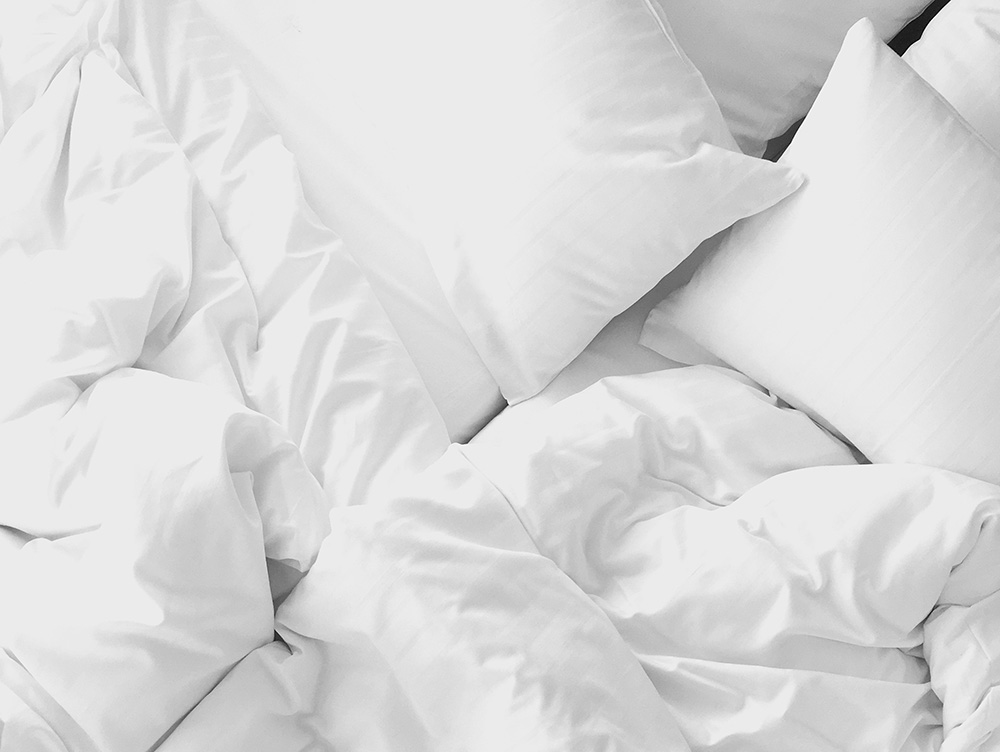
In 2015, the year I graduated from seminary, I set out to understand how I could survive with less sleep. My goal: two hours a night.
If you don't know me, I'm a productivity person. I like to get things done. But even more than getting things done, I like to get more things done.
So I started digging. I read journals, blog posts, books. What the best way to cut out sleep?
And then I found something curious. Sleep is not merely good for you--per the endless studies--it's great for you. It's the kind of thing that changes your life.
I'm a better skeptic than believer, so I kept reading. From a 1998 study, in a sample of over 3,000 students, two researchers found that high-schoolers getting C’s, D’s, and F’s were getting as little as an hour or less sleep per night than students getting A’s and B’s. The more I read, I saw that these kinds of statistics were not uncommon.
In my journey to do more with less (sleep), here's what turned me around, and eventually made me believe that sleep is one of the best tools I've got for being a good disciple of Jesus:
Penelope Lewis, a sleep researcher and neuroscientist at the University of Manchester, says, “in many ways, a sleep-deprived brain acts like a brain under the influence of alcohol.” The difficult part here, she continues, is that people can still accomplish high-level actions. Sleep-deprivation has a way of masking itself, and so we believe we’re more competent than we really are.
This is a process called synaptic homeostasis. Throughout a normal day, our brains collect millions of pieces of information. Some of this is helpful, but most isn’t. Sleep prunes the information we’ve collected in a process called downscaling. “This downscaling not only makes space for new learning,” notes Lewis, "it also removes noise and ... increases the ratio between important information and [useless] noise.”
Lewis again: “Sleeping may actually turn out to be one of the most proactive ways you could possibly try to solve whatever problem is bothering you.” This works because of “the general principle that neurons which fire together wire together.” The more you associate certain things, the more they become a trigger for each other. During your nightly mental cleaning, your brain clears out all the noise leaving the stronger connections as often “the only thing that is retained.”
But ... being convinced of something and then actually doing it are completely different. In the last three years, here's what I've done to start getting 8+ hours per night.
After I became a believer in getting enough sleep, I began to see new things in the Bible. I was surprised, for instance, at how often Jesus uses rest as a metaphor for a life of peace. Or how often the different poets in the Bible speak of “rest” and “sleep” and being “refreshed.”
Maybe, perhaps, getting enough sleep is part of God’s plan for us after all.
Joe Fontenot is the editor of the Geaux Therefore blog and the author of Life Hacking Spiritual Disciplines. He writes a daily blog at joefontenot.info.
NOTES
The study of 3,000 school children comes from an American Psychological Association article, “Sleep deprivation may be undermining teen health” (October 2001, Vol 32, No. 9, page 42).
Quotes from Penelope Lewis come from her book, The Secret World of Sleep (Palgrave MacMillan, 2013), pages 16, 50-52, 101, and 109, respectively.
One more note, in this blog post, I’ve limited my research to one researcher’s work, only because of her eloquence. On this matter, her work is not very controversial, and many others, including Jeanne Duffy, Till Roenneberg, Martha Merrow, Erin C. Hanlon, and Esra Tasali, bear out similar conclusions.